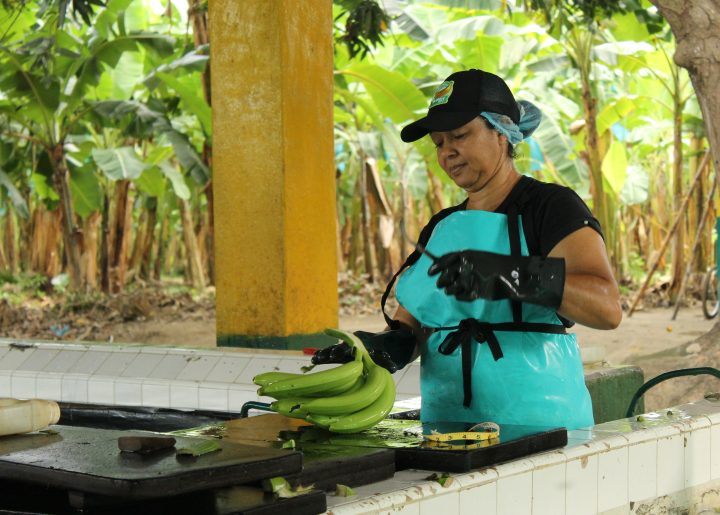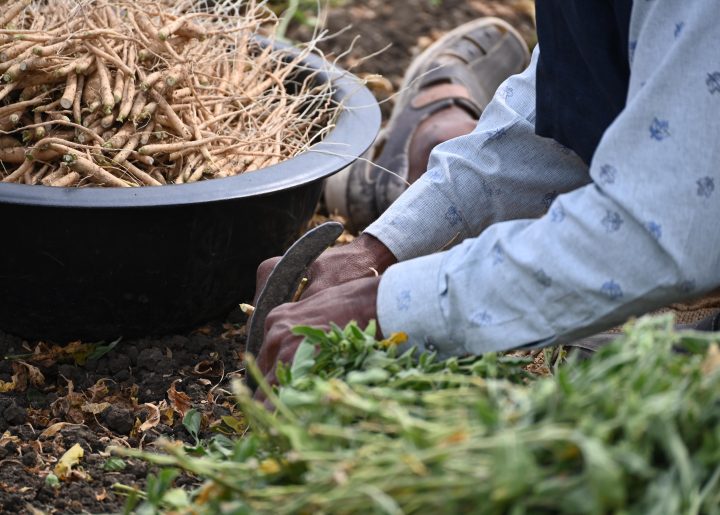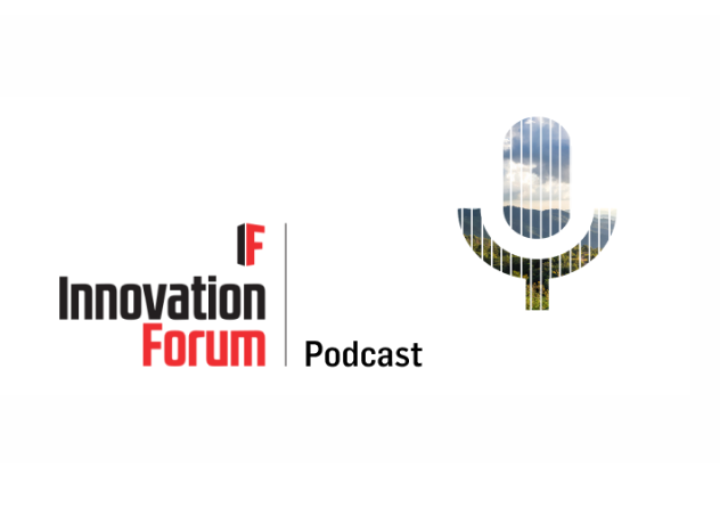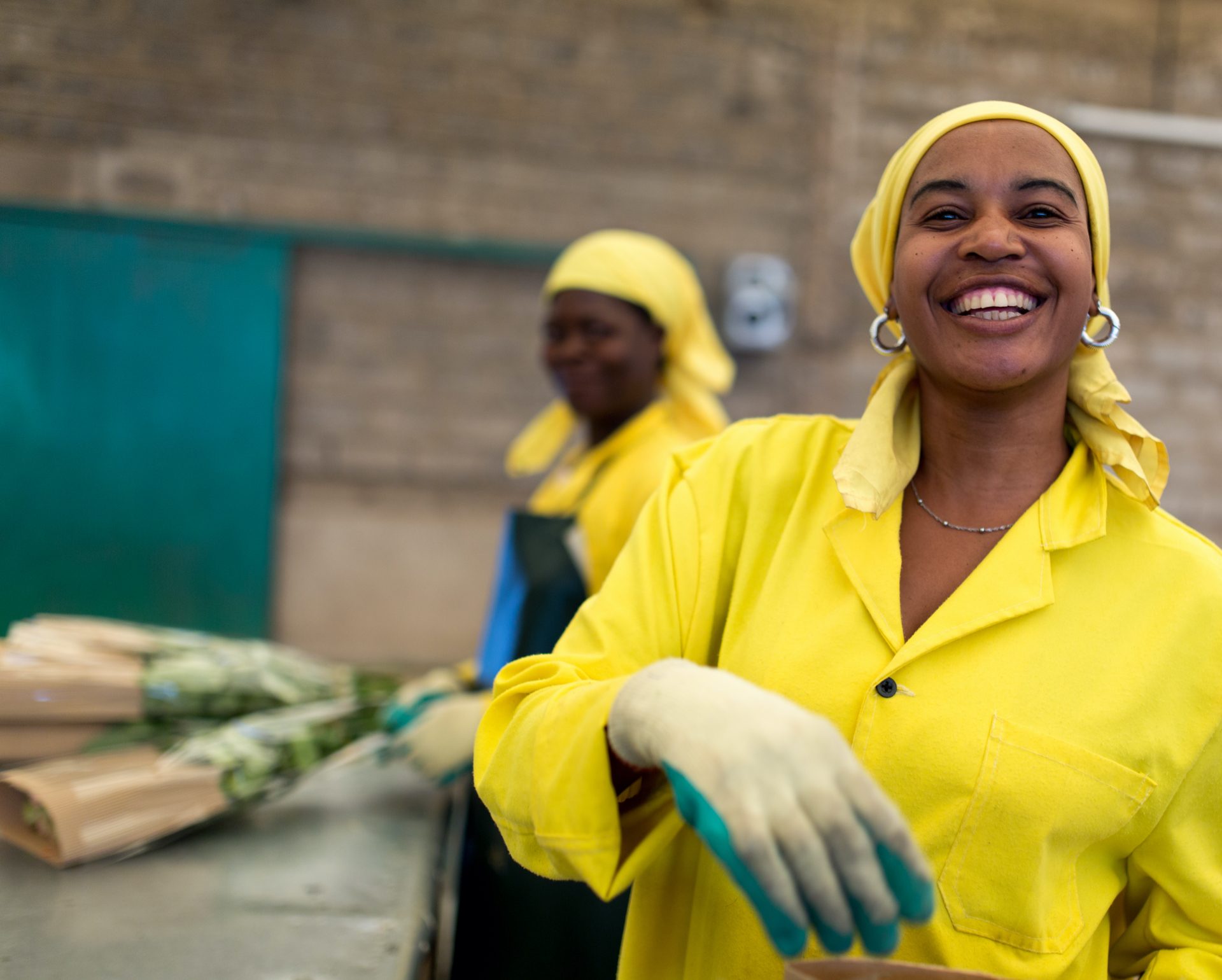6 Ways to Fairtrade Your Coffee Shop
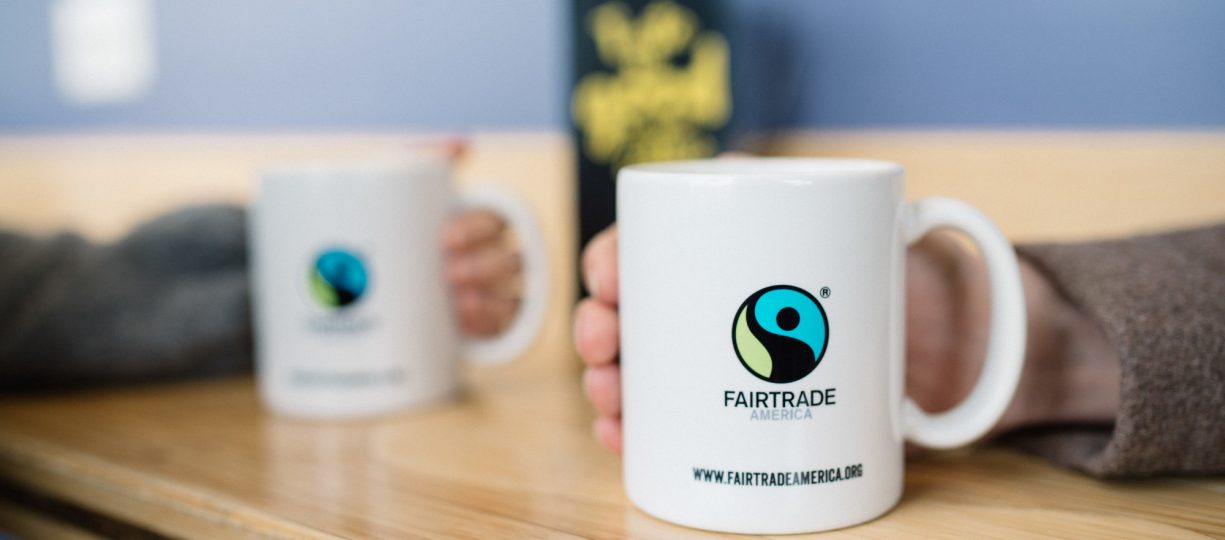
Independent coffee shops are the throbbing hearts of many neighborhoods. Places where patrons create, collaborate, celebrate and commiserate.
Here at Fairtrade America, we often get asked by local coffee roasters how to turn their beans into little granules of hope for smallholder farmers. However, did you know that there are more ways to help farmers and workers through your café?
Here are just six ideas…
1. “Clothes make the [hu]man. Naked people have little or no influence on society.”
Mark Twain obviously said this in the days before Kim K, but regardless, most cafés prefer that their staff be clothed. The current café costume is clearly house hipster clad in copious layers, horn-rimmed glasses and indoor scarves.
But if you prefer that your staff wear a company t-shirt, why not make that shirt Fairtrade certified? Cotton farmers, especially in India, need your support now more than ever to get a fairer deal for their fibers. Email the Fairtrade team and we can help you find the type and quality of shirt right for you.
2. Cups, napkins and spoons, oh my!
Styrofoam and polystyrene. They sound so space age. And at the rate we’re going, our planet might be gone by the time this stuff decomposes. Leaching toxins and tempting to animals – try ditching the plastic and the foam, and opt for recycled paper, napkins, and corn utensils instead. Even better, offer customers a discount if they bring their own vessel or silverware (Wait, what? You don’t walk around with a sporknife on your keyring?).
If you’re slow to change, your local government might speed up your decision. Cities across the country have banned polystyrene thanks influence from dedicated campaigns, like the one here in DC – Foam Free DC.
3. Go green!
Fairtrade producers are stewards of the environment – climate heroes if you will. Most are smallholder farmers who depend on a small square of this Earth to make their living, support their families and improve their lives. Climate change is hitting these farmers the hardest – a prime example is coffee rust, a fungus that has ravaged coffee farms in Central America through to Peru. Now many are replanting and working to adapt to the effects of climate change.
You can take small steps in your café to help mitigate climate change with a few good habits.
- Turn it off. Add automatic switches to the lights so that they turn off when no one is around.
- Compost organic matter. The Fairtrade America office uses Veteran Compost. Check what is available in your area.
- Grounds for your garden. Offer your customers coffee grounds to take home. Check out these 7 tips from Craftsy.com for how to use them.
Or you could go all out like our friends at Steep & Brew in Wisconsin. They now roast their Fairtrade certified coffee using solar power!
4. Happy staff means happy customers
Fairtrade values the 1.65 million farmers and workers that make up our system. Representatives from farmers’ and workers’ organizations hold seats on our board, our standards committee, and they have an equal say in decisions on a global level at the international general assembly. Fairtrade International has a whole program dedicated to workers’ rights encouraging mature relations between managers and employees that can benefit not just employees, but the overall business.
You can support your employees by actively communicating their rights and yours. Workplace Fairness is a great nonprofit that helps businesses do just this. Engaged employees take pride in their work and are more eager to contribute.
Look into ways you can go beyond statutory benefits. For instance, at Fairtrade America, we offer all employees one day off a year to volunteer for a cause close to their heart. We also offer a stipend for gym membership or fitness classes.
A happy and healthy workforce will help your business grow!
There are few jobs in this world that come 100 percent naturally with no education or training. Even though many Fairtrade certified farmers are carrying on a family business that they and their parents and their parents’ parents have managed, there is still more to learn. The Fairtrade producer networks regularly run training courses with farmers around the world to shine a light on new techniques and share what’s working well in other regions.
5. Calling the curious
It’s so important to improve the knowledge of your employees as well as your customers. Kaladi Coffee have done this well by recording and posting short training videos on their website. Organic India, which sells teas and organic supplements, has also done this with their Herbal U platform. What tips could you share? More importantly, ask your staff to share what they know.
6. And finally, the best way to Fairtrade your café is…
Okay, it’s obvious, but, well, choose Fairtrade. We can help you source Fairtrade certified coffee to roast – find out more here. If you buy coffee from other roasters, check out the ones on this list – they’re pretty tasty and they make a real difference to coffee farmers.
Don’t stop at coffee – Fairtrade your tea, honey and sugar as well. Tate and Lyle even offer flavored syrups to make those caramel lattes positively sing! Also, stock Fairtrade bananas and chocolate at the register for those who need a quick pick-me-up.
Have more tips to on how to Fairtrade your café?
We’re in this together
Fairtrade America partners with brands on the journey to certification and beyond. We can help with everything from finding a certified supply chain to marketing your newly certified product.
Get in Touch
